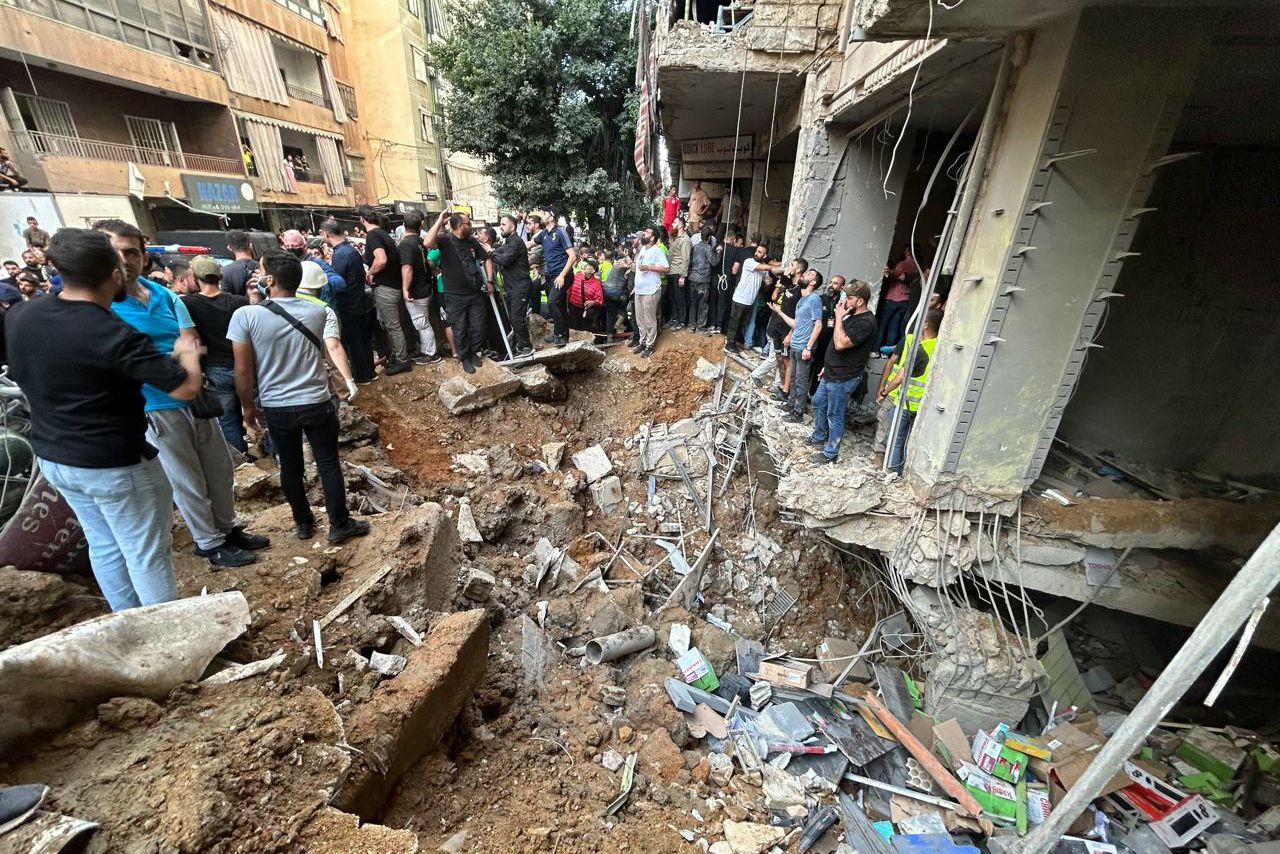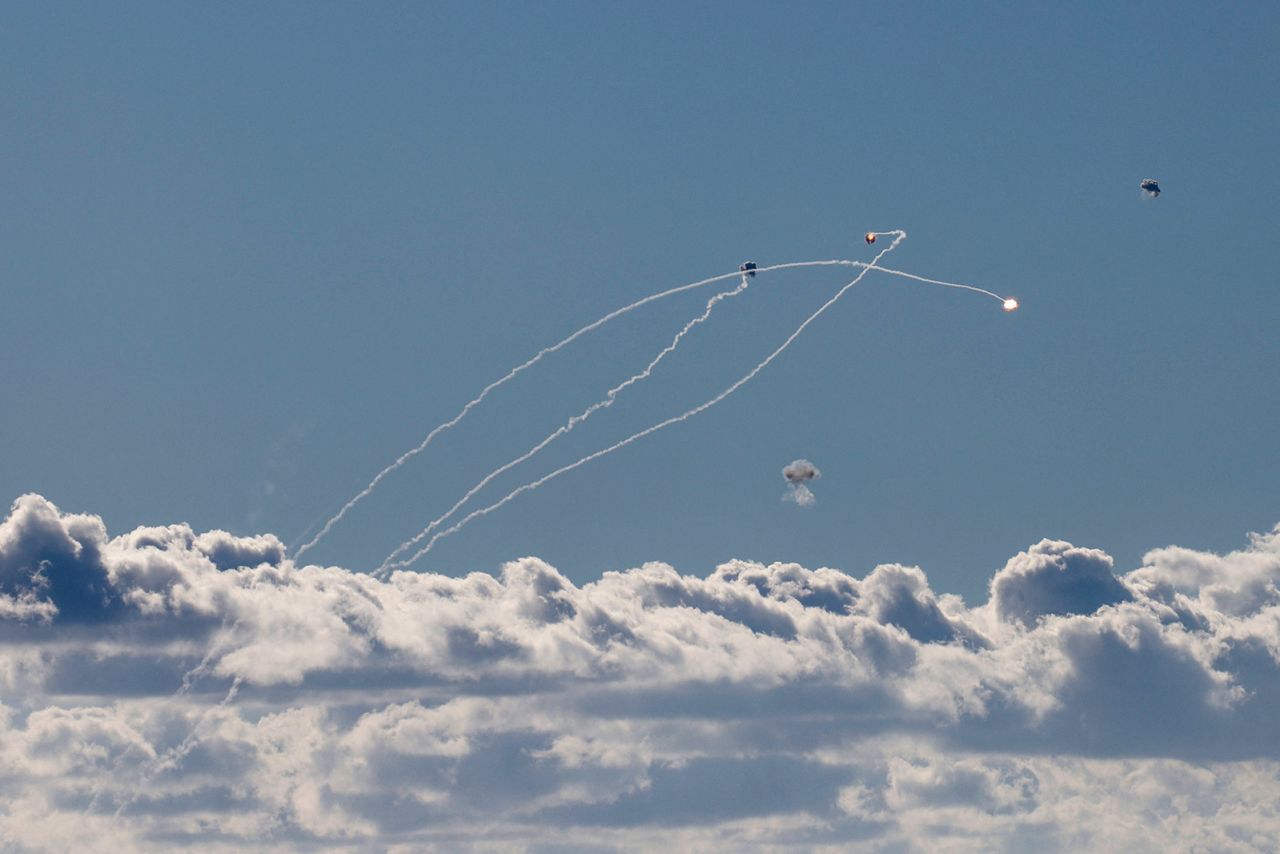Rockets fired from southern Lebanon are intercepted by Israel's Iron Dome air defence system over the Upper Galilee region in northern Israel on September 18.
AFP via Getty Images
Israel and Hezbollah — a powerful Iran-backed paramilitary group in Lebanon — have been in conflict for decades, but the two have ramped up cross-border attacks on each other since the war in Gaza began.
This week’s deadly attacks in Lebanon, in which explosives were planted in devices carried by Hezbollah fighters, have drawn sharper focus to the long-simmering conflict.
Israel’s defense minister says a “new era” of war is beginning, and “the center of gravity is moving north,” referencing the country’s border with Lebanon. Hezbollah’s leader says the unprecedented attacks “crossed all the red lines.”
How we got here:
A “supportive front” for Gaza: Hezbollah is part of a larger Iran-led alliance of militant groups spanning Yemen, Syria, Gaza, and Iraq that has engaged in increased clashes with Israel and its allies since the war with Hamas started.
The alliance said they will continue striking Israeli targets as long as the war in Gaza goes on, rebranding themselves as a “supportive front” for Palestinians in the strip, as described by a senior Hezbollah leader.
Killing of key leader: After months of tit-for-tat exchanges, tensions escalated when Israel said it killed Hezbollah’s most senior military commander with a strike on Beirut, Lebanon, in July.
Israel held the commander, Fu’ad Shukr, responsible for a deadly attack on the Israeli-occupied town of Majdal Shams in the Golan Heights, which Hezbollah has denied responsibility for.
In retaliation, Hezbollah launched hundreds of drones and missiles at targets in Israel in August. Israel denied any important targets were struck, and no evidence has been made public to contradict that denial.
Displaced residents: The increase in cross-border fighting has forced people from their homes in both northern Israel and southern Lebanon.
On Tuesday, Israel made it a new war objective to return tens of thousands of Israel’s northern residents to their homes near the border. Officials and residents from the northern region have placed increasing pressure on the Israeli government about the need to return.
More than 100,000 people have been displaced from southern Lebanon, according to the Lebanese health ministry.
Hezbollah’s arsenal: Hezbollah is believed to be the most heavily armed non-state group in the world. Though no match for Israel’s military might, the group’s increasingly sophisticated arsenal has the potential to inflict significant damage.
But Hezbollah has been backed into a corner by Israel’s latest attacks, with its credibility as the most well-equipped, well-trained and highly disciplined of Iran’s proxies now at risk.






























